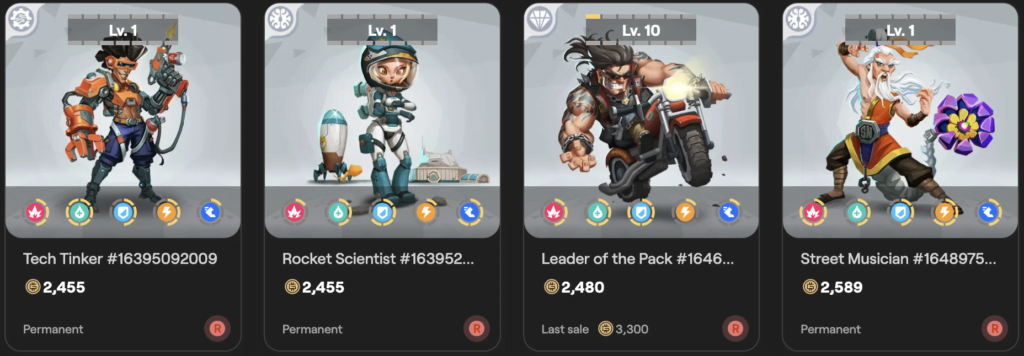Polygon has experienced a remarkable surge in NFT sales, surpassing $38 million so far in January. This surge has spotlighted the network, particularly as it recently outperformed Ethereum in 24-hour NFT sales for the first time.
Polygon’s Growing NFT Landscape
Since the beginning of 2024, Polygon’s NFT landscape has shown substantial growth, culminating in the recent week’s sales, which marked a threefold increase from the preceding period. This performance is Polygon’s strongest showing in the NFT domain since August 2023. Although Polygon is now back to third spot in 24-hour sales, even a temporary advantage over its base layer in a key Web3 sector marks a notable achievement for a layer-2 network.
One of the catalysts behind this boom in Polygon’s NFT sector is the collections from the Web3 game, Gas Hero.
Gas Hero: A Contributor to Polygon’s Success
Gas Hero, a newly launched social-strategy Web3 game, has played a significant role in Polygon’s NFT surge. Players of Gas Hero assemble hero squads to battle, acquire power, collect NFTs and earn GMT tokens. The success of Gas Hero’s Common Heroes collection is evident as it emerged briefly as the most traded collection for 24 hours, surpassing even Ordinals NFTs on Bitcoin in terms of sales for a period.

DappRadar’s data highlights a sharp increase in active users and transactions for Gas Hero on its launch day. Although activity slightly diminished in the following days, the game’s overall success is evident in the heightened NFT activity on the Polygon network. This success story of Gas Hero and the overall growth in Polygon’s NFT sales underscore the expanding influence and capabilities of Polygon in the evolving NFT and Web3 gaming landscapes.
Polygon’s surge in NFT sales, surpassing Ethereum for a time, marks a big milestone for the network. The growth in Polygon’s NFT landscape demonstrates the network’s ability to attract users and showcase its capabilities in the Web3 gaming sector. As Polygon continues to evolve and expand its influence, it will be interesting to see how it further establishes itself in the NFT and Web3 gaming domains.
NFT-based DeFi platforms utilize tokenized real-world assets to create innovative financial products and services, offering new investment opportunities for users.
Polygon’s Layer-2 scaling solution enables it to handle thousands of transactions per second, providing swift interactions with NFT assets.
Polygon uses a Proof-of-Stake consensus mechanism, which consumes significantly less energy than the traditional Proof-of-Work model, resulting in a reduced carbon footprint.
OpenSea, the largest NFT marketplace, has integrated Polygon to provide users with a more efficient and cost-effective way to trade digital assets.
Polygon NFTs offer unparalleled scalability, affordable transaction fees, environmental sustainability, and cross-chain interoperability.
Challenges and risks include legal and regulatory hurdles, as well as market volatility and speculation, necessitating thorough research and caution from users.
Cross-chain interoperability allows users to seamlessly transfer assets between Ethereum and the Polygon network, offering a versatile and accessible NFT experience.
The minting process includes initiating the transaction, setting up a smart contract on the Polygon network, and paying a small gas fee for transaction confirmation.
Creating a Polygon NFT involves selecting a compatible platform, uploading digital assets, and assigning attributes and metadata to the asset.
Polygon’s lower transaction fees, compared to Ethereum, make it a more cost-effective choice for creators and collectors in the NFT market.



